Parallel event held at 54th session of the United Nations Human Rights Council
GENEVA October 14, 2023: The ECOSOC accredited NGO, Pasumai Thaayagam Foundation, in association with the British Tamils Forum (BTF), Swiss Tamil Action Group (STAG) and the United States Tamil Action Group (USTAG), conducted a parallel event on October 06, 2023 in Geneva, Switzerland during the UN Human Rights Council’s 54th session.
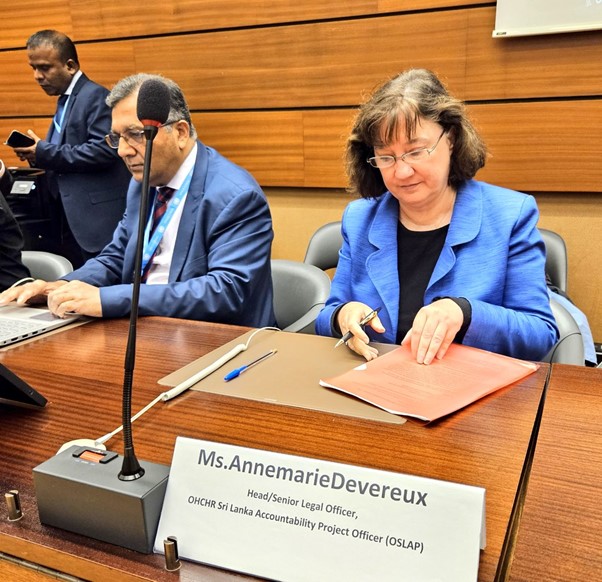
The panellists were Dr Annamarie Devereux – Head/Senior Legal Officer of the UNHRC mandated OHCHR Sri Lanka Accountability Project (OSLAP); Ambassador Stephen J. Rapp – a former international prosecutor of atrocity crimes and former United States Ambassador-at-Large for War Crimes Issues; Dr. Beth Van Schaack – Ambassador-at-Large for Global Criminal Justice, US Department of State; Ms Malliha Wilson – Former Assistant Deputy Attorney General (Civil), of the Government of Ontario and an International Human Rights Lawyer; and, Dr. Anbumany Ramadoss – an Indian member of Parliament from Tamil Nadu and a former federal Minister of Health and Family Welfare. Councillor Sarmila Varatharaj, former Deputy Mayor of Wandsworth Council, London moderated the event.
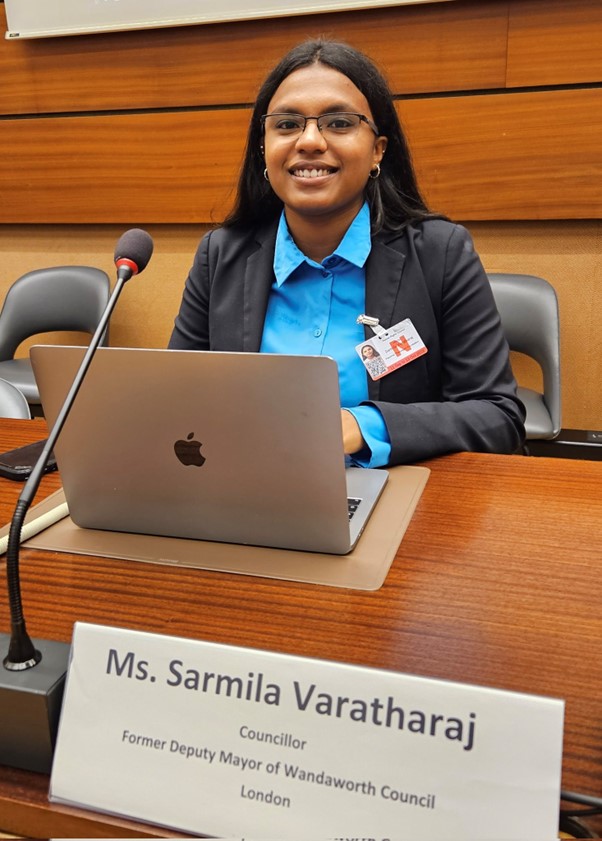
The event took place following the scathing report put out by the High Commissioner of the UN Human Rights Council (UNHRC) pointing to the serious accountability deficit for past atrocity crimes in Sri Lanka and the call to the Sri Lankan government to deliver on past commitments and Council resolutions. A clip from a recent interview by a German TV was shown at the event where Sri Lanka’s President Ranil Wickremesinghe angrily rejected any notion of an international investigation demonstrating his desire to protect the perpetrators of atrocity crimes by military and political leaders including his predecessors and endorsing prevailing environment of impunity.
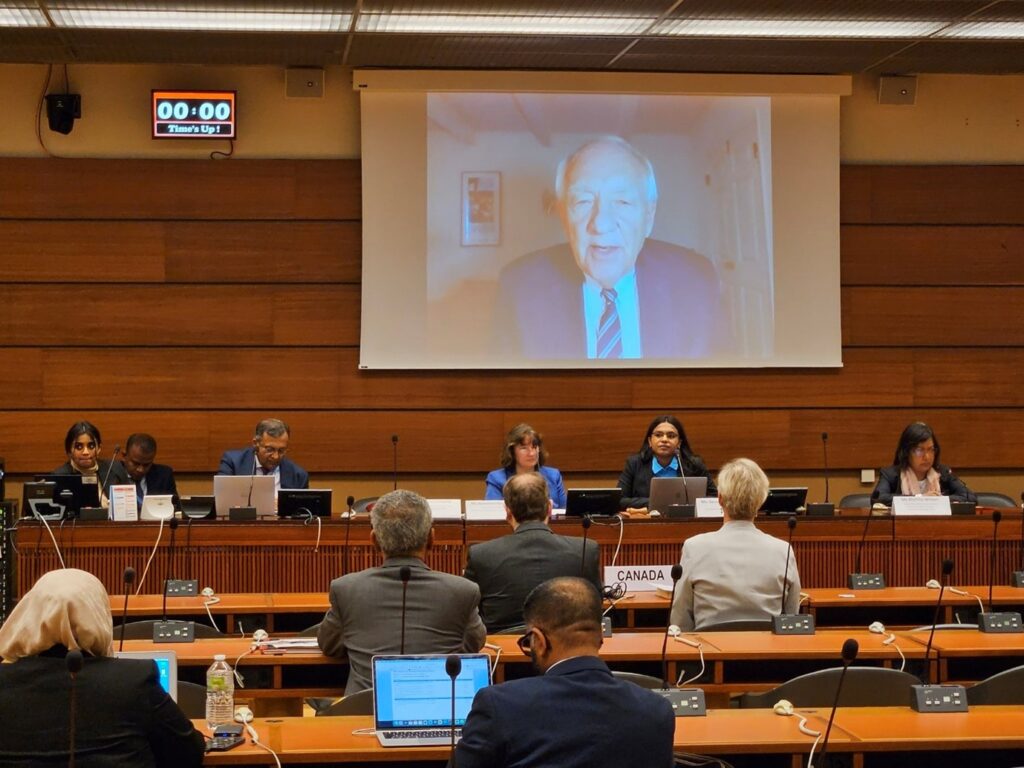
Dr. Beth Van Schaack, stating that she was motivated by the recognition that measures of accountability for those most responsible, coupled with an honest assessment of the past added the importance of a durable peace and a prosperous future with a comprehensive transitional justice programme to include a justice component but also engage in truth telling, reparation, memorialization, institutional reforms, and other guarantees of non-recurrence.
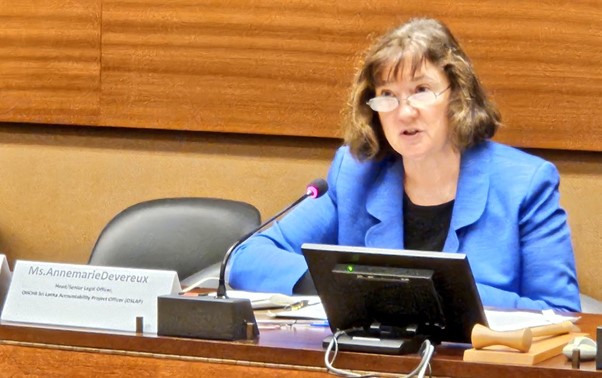
Dr Schaack continued that as a member of the core group and Human Rights Council’s resolutions on Sri Lanka, she was aware that Tamil people have been waiting years, indeed decades, for justice processes to begin in earnest and to produce meaningful results. She expressed dismay that the period of hope, following Sri Lanka’s consent and co-sponsorship of a comprehensive transitional justice agenda in the 2015 resolution has since dissipated.
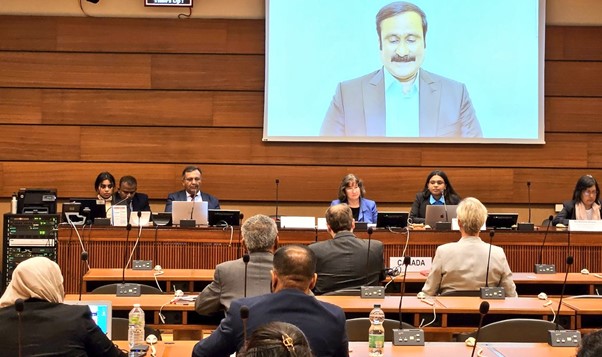
Ambassador Van Schaack questioned the motives of the Sri Lanka government mooting a Truth and Reconciliation Mechanism without having the required consultations with victims and without providing any link to accountability mechanisms. She stated that Sri Lanka would remain on the Human Rights Council agenda precisely because of the failure over many years to address the abuses of the past and to ensure that those abuses would not go unpunished.
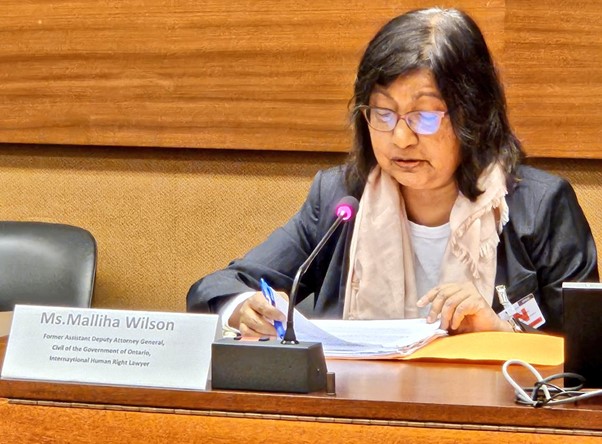
“In the absence of credible domestic justice processes, the options elaborated by the HRC resolution remain the most viable pathways to justice and accountability. This would include universal jurisdiction where applicable, sanctions and visa ban to support truth telling, accountability and to recognise harm to victims and survivors, and continued support for United Nations Sri Lanka Accountability Project. This panel may also wish to discuss ways to strengthen the resolution and to seek better compliance with international human rights treaty obligations. Though worthy of consideration, the prospect for other judicial pathways, however, remain remote and challenging,” Ambassador Beth Van Schaack concluded.

Ambassador Stephen Rapp, emphasising the importance of pursuing accountability in Sri Lanka, if not possible there, then elsewhere in third countries or in international bodies, for the violations and crimes committed, cited that very serious crimes were committed by the Sri Lanka government during the conflict. Referring to murders of surrendered, intentional, and disproportionate attacks on civilians and torturing, violating sexually on those, who were detained, deserved full investigation. Ambassador Stephen Rapp added that those alleged committing crimes deserved opportunities to defend their innocence. Despite it was promised in 2015, it was never delivered.
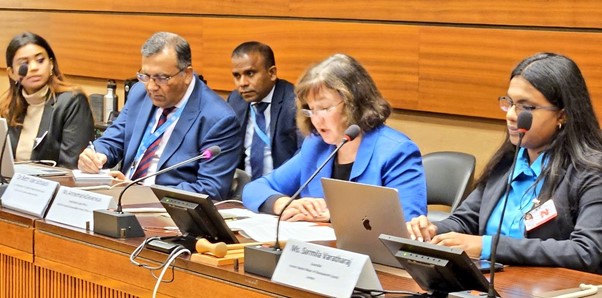
Referring to impunity, Ambassador Stephen Rapp said that when some people would get away with these things, other people would think that they would do the same – hence the rise in incidents of detention, torture and ransom. Ambassador Rapp was confident that the OHCHR’s Sri Lanka Accountability Project (#OSLAP) would bring the truth out.
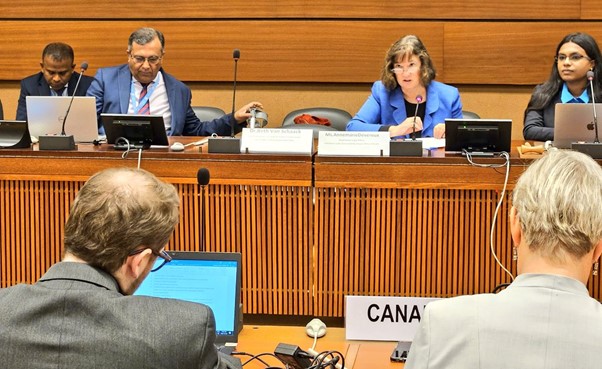
Dr. Anbumany Ramadoss expressed his concern of the suffering of Tamil people in Sri Lanka due to racism, discrimination, and other many forms of intolerance for decades and emphasised on the importance of the OSLAP to provide path for justice for the victims and to curtail on-going destruction of Hindu temples and proliferating Buddhist viharas in traditional Tamil homeland.
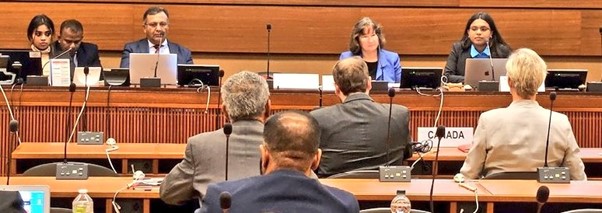
Ms Malliha Wilson spoke on many past and ongoing important issues in Sri Lanka and explained new avenues of operationalizing Universal Jurisdiction with recent examples of advancement in Canada. Based on the serious nature of findings by the Secretary General’s Panel of Experts and the OISL report, Ms. Wilson pointed out that its incumbent upon the OSLAP investigation team to determine whether the mass atrocities and war crimes committed against the Tamils in Sri Lanka rise to the level of genocide as often asserted by the victim community.
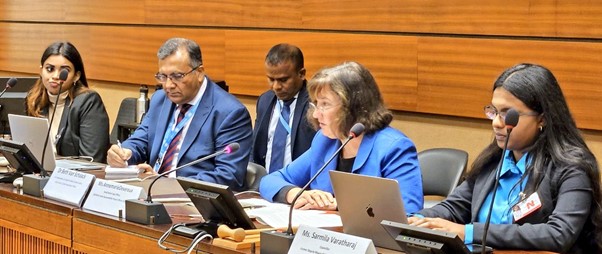
Dr. Annamarie Devereux of the OSLAP team first explained the terms of reference of the Sri Lanka Accountability Project. Referring to the HRC 46/1 Resolution as the main pillar established in 2021 followed by the October 2022 Resolution HRC 51/1 extending it for a period of two years, Ms Devereux reiterated the importance of collecting, consolidating, analysing, and preserving information to develop strategies for future accountability and serious violations of international humanitarian law and to support relevant judicial and other proceedings.
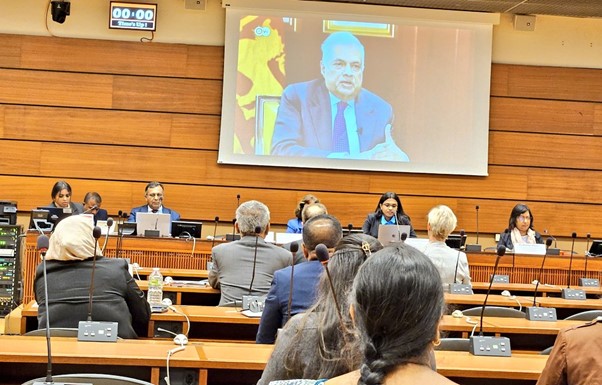
Stating that the adoption of Resolution 46/1 was for the need to be seen against the background of the ongoing concern of the Human Rights Council of serious violations that have occurred over many years, Annamarie touched on the events such as the Secretary General assigning a Commission of Panel of Experts in June 2011, Human Rights Council requesting UN Mission to undertake a comprehensive investigation of alleged serious violations and abuses and subsequent finding (OISL report), among many, to deal with a deep seated institutionalised culture of impunity.
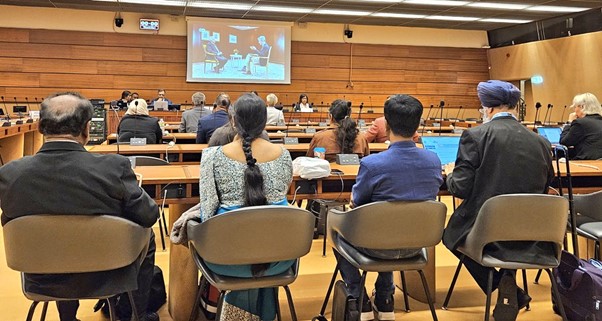
She added that processing SLAP itself would involve complex task of ensuring documentation to maximise its potential use in future proceedings with a recovery system to make it more accessible including exploring options of providing various online translation services.
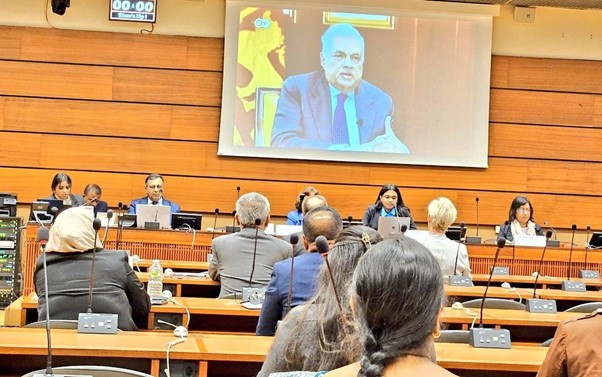
She further added while prioritising areas with available resources OSLAP is trying to establish connection between individuals and specific violations for the purpose of accountability. She also stated that the SLAP work involves reviewing the existing information in detail on matters of enforced disappearances and violations against children. Witness identities will be protected and risk analysis will be undertaken before any data is shared with potential prosecution entities or States.
The OSLAP work entails an emphasis on the importance of a comprehensive approach incorporating judicial and non-traditional processes to ensure the rights of victims, justice and reparations. In its activities the project integrates gender perspectives as well as approaches ensuring the protection of children with their best interests, Dr Devereux stated.

